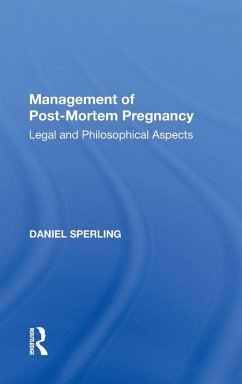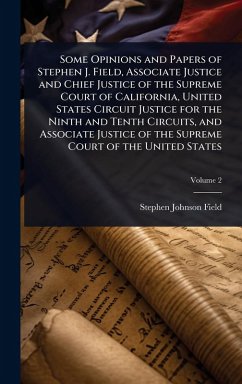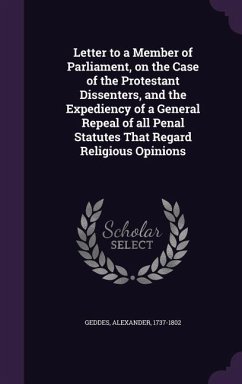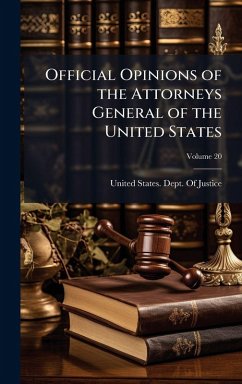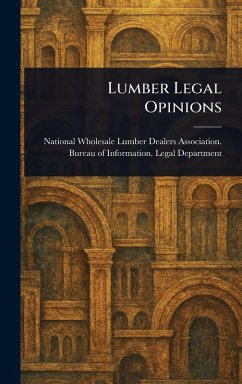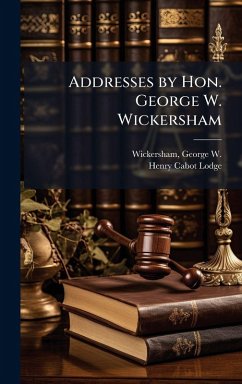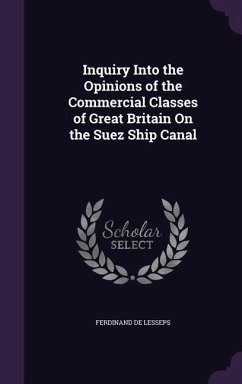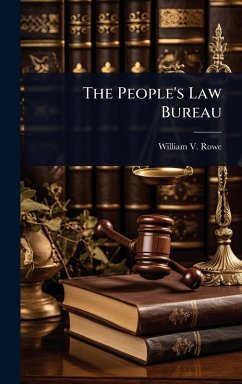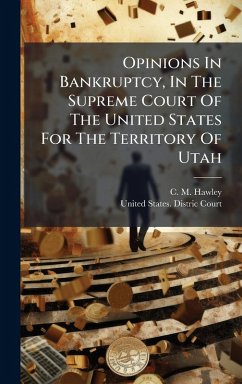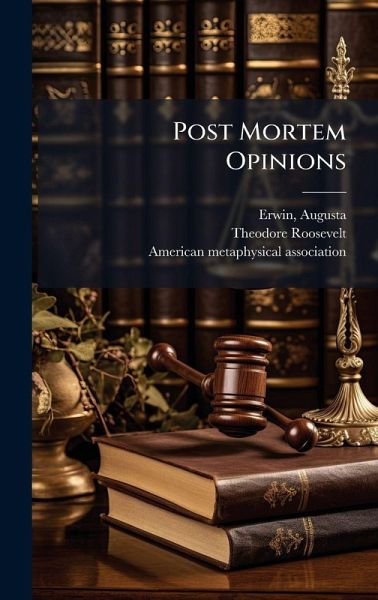
Post Mortem Opinions
Versandkostenfrei!
Versandfertig in über 4 Wochen
29,99 €
inkl. MwSt.
Weitere Ausgaben:

PAYBACK Punkte
15 °P sammeln!
"Post Mortem Opinions" presents a unique collection of legal insights and perspectives from the early 20th century. Featuring works by Augusta Erwin, Theodore Roosevelt, and the American Metaphysical Association, this volume offers a glimpse into the legal and intellectual discourse of the time. Roosevelt's contributions add a layer of historical significance, reflecting his profound influence on American politics and thought. This compilation is invaluable for legal scholars, historians, and anyone interested in the evolution of American legal philosophy and the socio-political context in whi...
"Post Mortem Opinions" presents a unique collection of legal insights and perspectives from the early 20th century. Featuring works by Augusta Erwin, Theodore Roosevelt, and the American Metaphysical Association, this volume offers a glimpse into the legal and intellectual discourse of the time. Roosevelt's contributions add a layer of historical significance, reflecting his profound influence on American politics and thought. This compilation is invaluable for legal scholars, historians, and anyone interested in the evolution of American legal philosophy and the socio-political context in which it developed. The essays within provide a fascinating window into the past, illuminating the debates and discussions that shaped modern legal thought. This work has been selected by scholars as being culturally important, and is part of the knowledge base of civilization as we know it. This work was reproduced from the original artifact, and remains as true to the original work as possible. Therefore, you will see the original copyright references, library stamps (as most of these works have been housed in our most important libraries around the world), and other notations in the work. This work is in the public domain in the United States of America, and possibly other nations. Within the United States, you may freely copy and distribute this work, as no entity (individual or corporate) has a copyright on the body of the work. As a reproduction of a historical artifact, this work may contain missing or blurred pages, poor pictures, errant marks, etc. Scholars believe, and we concur, that this work is important enough to be preserved, reproduced, and made generally available to the public. We appreciate your support of the preservation process, and thank you for being an important part of keeping this knowledge alive and relevant.




